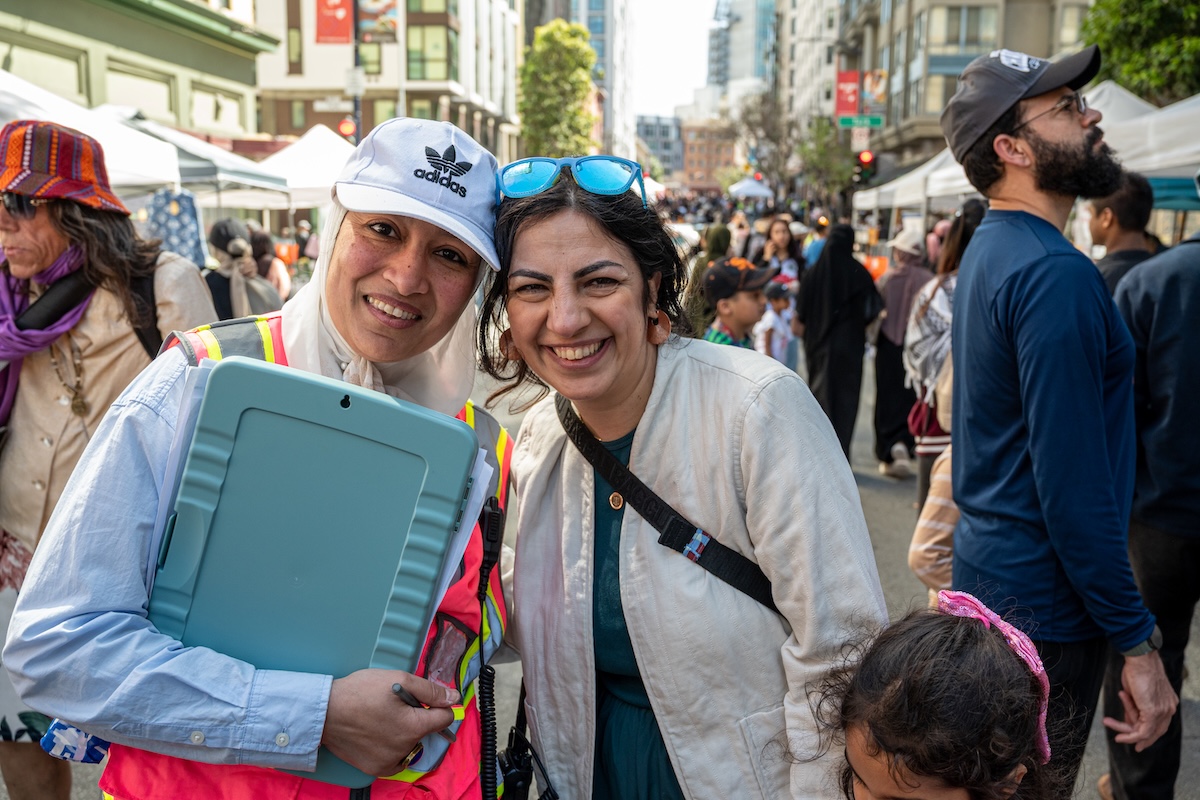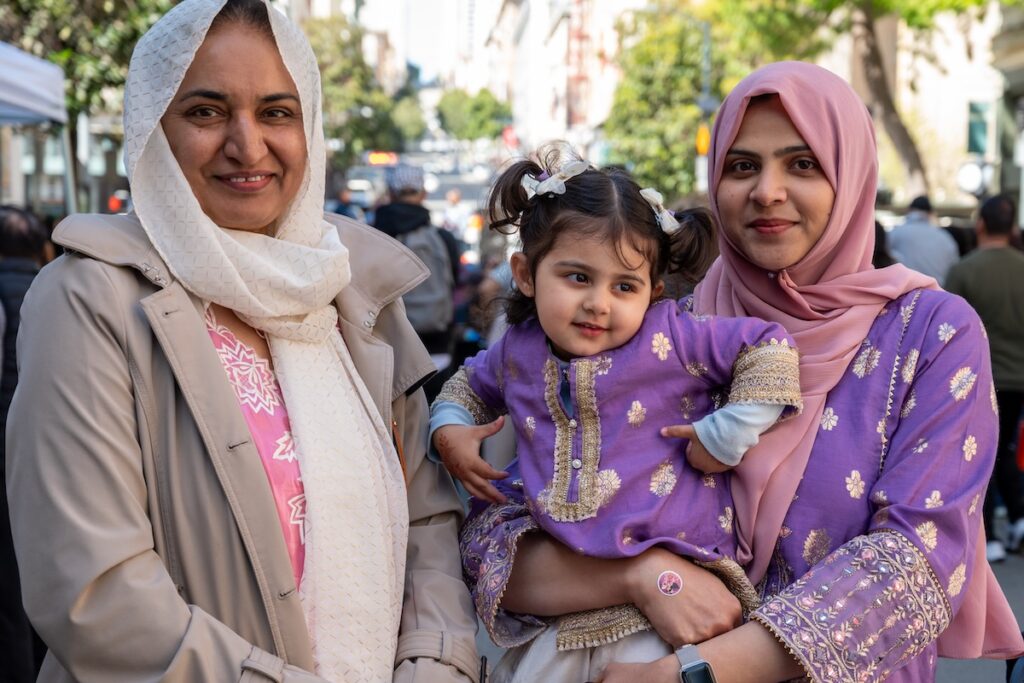SAN FRANCISCO — The streets of the Tenderloin bustled as residents packed together to celebrate Eid, the Muslim holiday marking the end of Ramadan, at an annual street fair earlier this month.
The scene, more akin to an Arab-style “souk,” or marketplace, marked a sharp contrast in a neighborhood notorious for its sizable unhoused population and high crime rate.
The Saturday, April 5 event was a fitting start to Arab American Heritage Month, designated just three years prior by then-President Joe Biden.
While the Tenderloin — home to San Francisco’s largest Muslim community — has hosted Eid celebrations in the past, this event was the most well-resourced to date. Spanning several blocks, local business owners sold homemade baklawa, grilled meats and intricate jewelry. A rock climbing wall towered over one intersection, while laughing kids rode donkeys and petted goats.
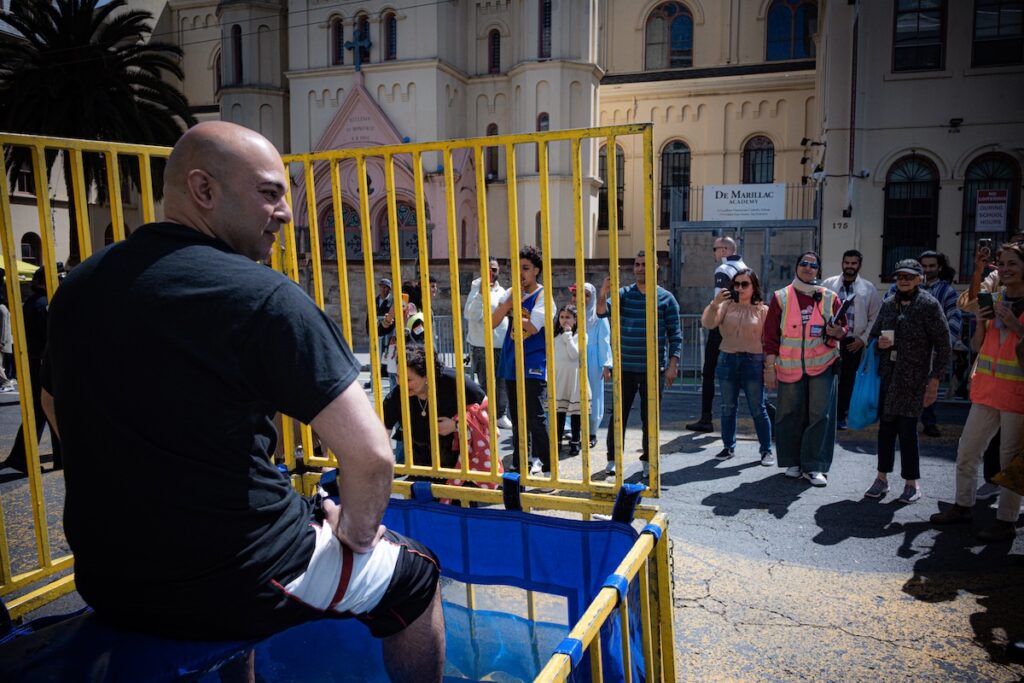
Meanwhile, twirling dancers and a young DJ from Gaza, MC Abdul, took over a stage on nearby Eddy Street, two blocks from the heart of the fair at Jones Street and Golden Gate Avenue.
Ahmad, 16, has called the Tenderloin home since coming to the US with his family from Yemen at 2 years old. “The best thing is there’s a lot of people to communicate with, make connections, it’s all family and love,” he said, even as he acknowledged the area’s rougher edges.
As for conditions in Yemen, he was less upbeat. “It’s f***d up right now.”
Yemen is at the heart of long-simmering geopolitical tensions involving the United States, Iran and other Middle Eastern powers. The country has been mired in civil war since 2014, displacing some 4.5 million people, according to UNHCR estimates.
A US offensive that began in mid-March which has killed at least 123 people — women and children among them — has only exacerbated already dire conditions there.
Nishwan Fadi Babakr is among the estimated 10,000 Yemenis living in and around San Francisco, many of them having fled the war. An engineer and accounting manager in Yemen, Babakr said he has struggled to find comparable opportunities in America, which he blames in part on his accent, though he speaks English with high fluency.
Still, on that Saturday he stood with his two young kids wearing traditional Yemeni clothes and wide smiles.
“In an environment where there is no fun, no nothing,” he said in Yemeni Arabic, referring to the challenges of raising a family in the Tenderloin, “a fun environment for children and also for the elderly and for parents to be with their children, this is a very beautiful thing.”
Starting in the 1970s and through the 80s, thousands of Southeast Asian refugees settled in the Tenderloin, leading to part of it being designated as “Little Saigon” in 2004. Today, alongside restaurants serving pho and pad thai are a growing number of eateries serving kebab and lamb saltah, a reflection of the neighborhood’s evolving demographics.
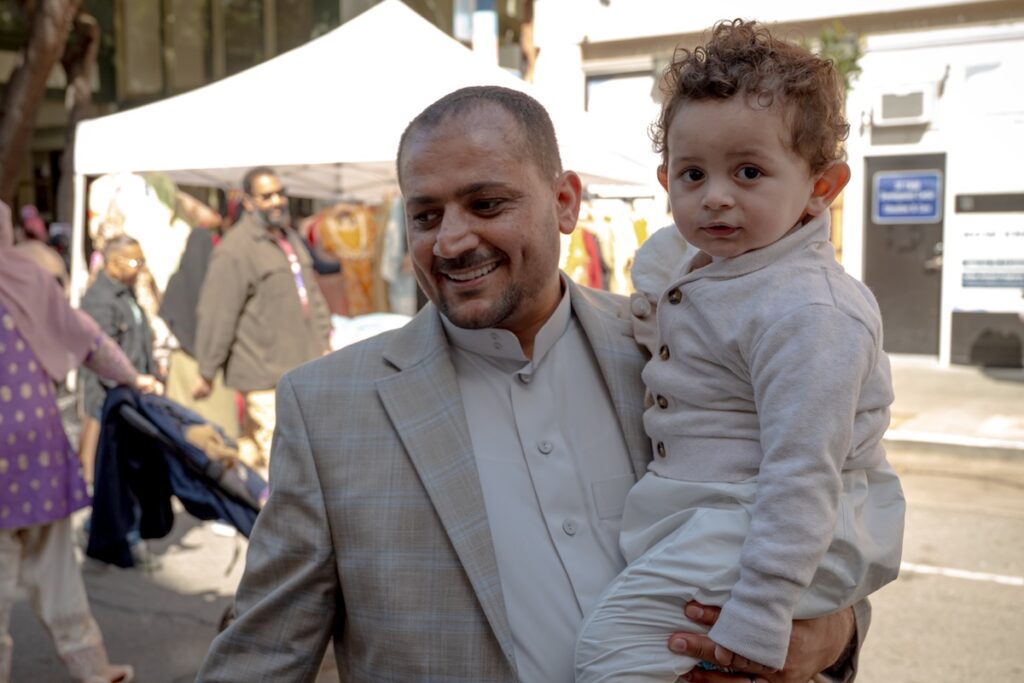
Soha Abdou Agina, program supervisor for the Tenderloin Community and Arab Families Program, said the Eid Street Market is one way for local Yemenis and Muslims to anchor stability.
“These hard-working families trying the best for their kids love the area because it reminds them of back home, how they have everyone together. Something like this brings back that we are united, we’re still here, we’re still going to work, we’re going to give back to the country and the Tenderloin,” she said.
“This is one of the reasons why we are trying to bring this market on a bigger scale, so people can know you can still come here,” she added. “But every single thing surrounding me makes me struggle. On the school level, on the small business level, on the immigration level.”
Babakr said the current administration’s increasingly harsh policies on immigration and refugee status are fueling anxiety among residents. “Half the families here, maybe the father or the wife, have relatives in another country waiting for Trump to let them in. The people cannot go back to their country.”
Agina agreed. “This is definitely affecting everyone,” she said, recalling how when she got her green card around 10 years ago, she had to wait only a few weeks for it to come in the mail. Now, the waiting is longer and conditions far more uncertain.
“It’s the sense of insecurity,” she explained. “It’s really scary.”
In November San Francisco elected the first Muslim to the Board of Supervisors. Bilal Mahmood represents District 5, which includes the Tenderloin. While the Eid fair is entirely community-run, Mahmood was key in getting city organizations to fund and promote it.
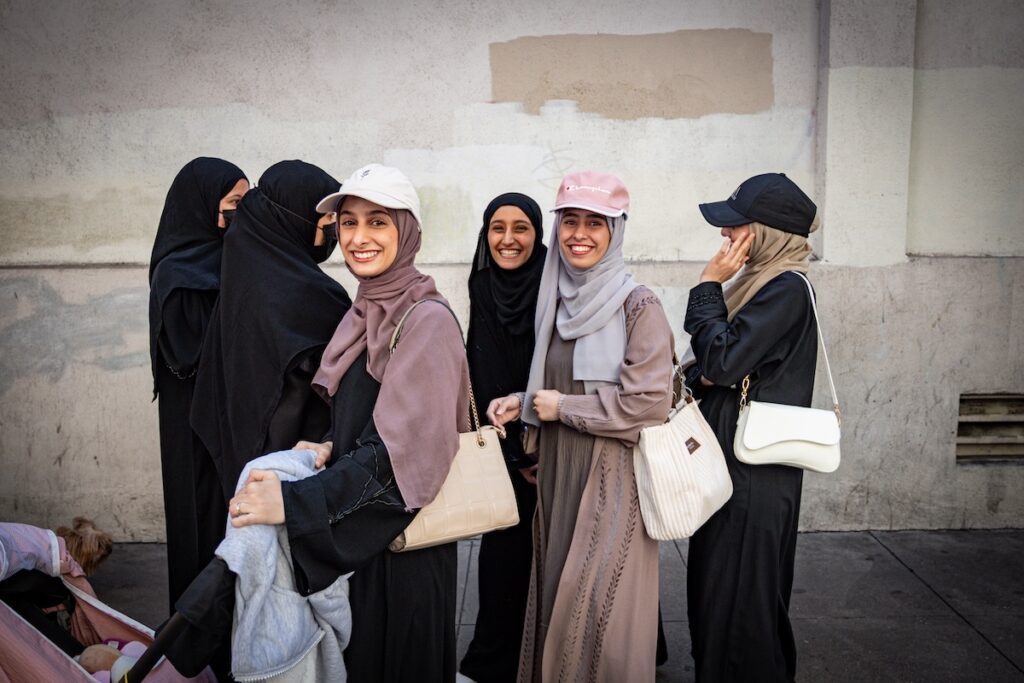
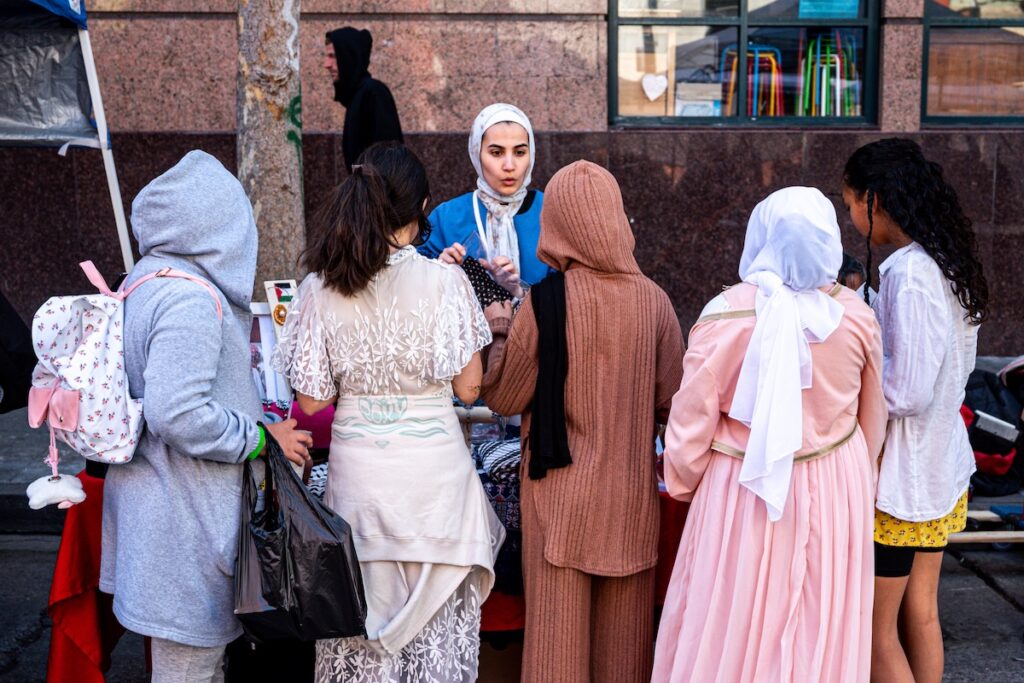
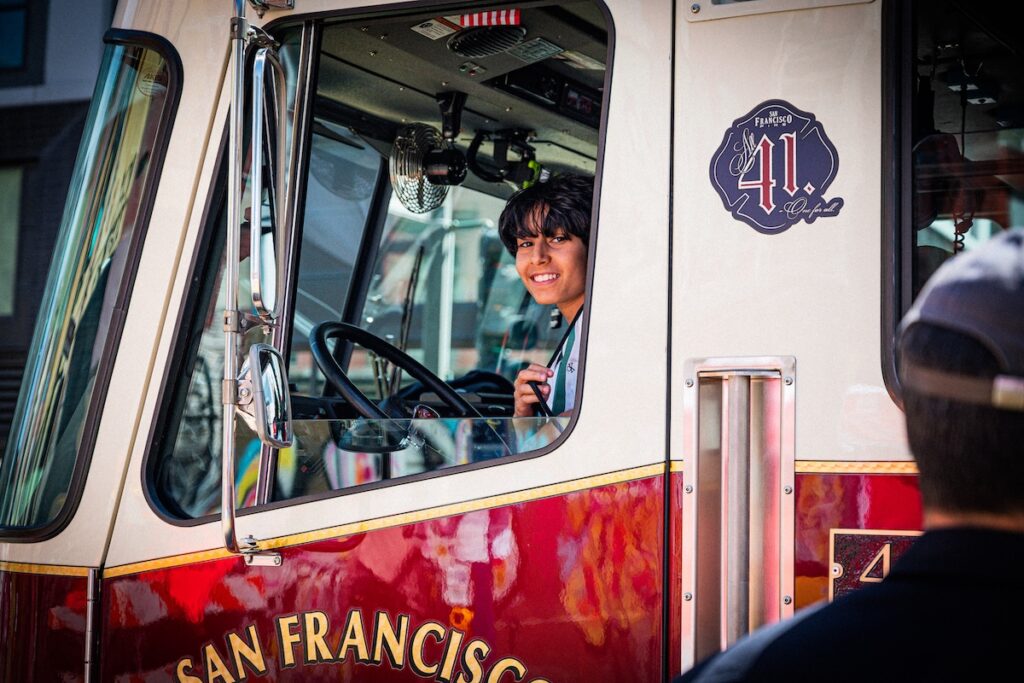
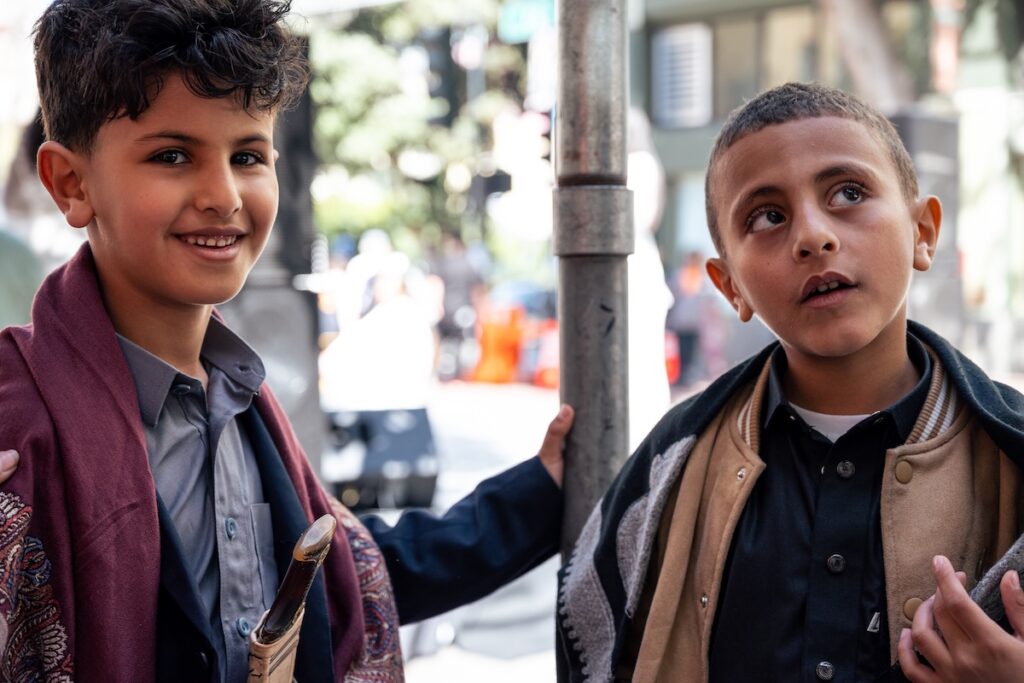
“We want this to be the first of many so that people start to see the Tenderloin as a hub for these small businesses and communities,” he told American Community Media, comparing the Eid festival to similar high profile events, including the annual Lunar New Year celebration and popular night markets around the city.
Mahmood acknowledged that discrimination against Arabs and Muslims remains high in the neighborhood.
In 2022, for instance, 12 year old Yemeni immigrant Raghad Saleh was physically attacked in broad daylight on nearby Larkin Street by a woman yelling Islamophobic statements about the girl’s hijab.
This community-wide vulnerability is one reason why he supported San Francisco’s unanimous resolution to reaffirm its status as a sanctuary city in late January, Mahmood explained: “The main challenges that I hear from the community are concerns around immigration, including deportation threats.”
When first promoting the Eid market, Mahmood saw those threats firsthand when his office received over 3,000 emails saying that because he was supporting Palestinians through the event, he was an anti-Semite.
“A lot of people don’t like Palestinian representation,” he said. “Some people just don’t want to have children to have fun. We are not focused on these outlier voices that don’t live in the Tenderloin and probably not even San Francisco.”
Mahmood increased security at the fair in response to the messages, but the event went without incident.
“You can’t be afraid of loud single voices online,” he added. “We’re about serving the communities here. This is about giving them the resources and investment that they need on a perpetual basis so their future will always be a focus.”
Regardless of the adversity, Nishwan Babakr says the local Yemeni community is here to make their lives and their community better for everybody.
“We try to keep this country safe, supporting peace, respectful… Because if it’s safe we can all live together in peace. We can make our neighbors and our streets nice, our city and our country safe.”
Peter Schurmann contributed reporting for this story.



